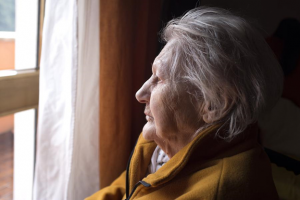Depression in seniors is more than just feeling blue or sad. It is a common, yet serious mood disorder that needs immediate treatment. If not, it can cause severe symptoms which can affect how you think, feel, and handle daily activities like working, eating and sleeping.
However, if you think that depression is only a “teen” problem, then you’re wrong. Depression can also come to adults and even make your elders suffer.
The Difference Between Depression in Younger Adults and Depression in the Elderly
Depression can affect older individuals differently than younger people. For seniors, depression can often occur with other medical disabilities and illnesses and usually lasts longer.
Depression in older people is associated with a greater risk of cardiac problems and increased risk of death from an illness. Also, depression significantly reduces a senior’s ability to rehabilitate, thus making it lasts longer than in younger adults.
Moreover, depression in older people increases the risk of suicide, particularly in elderly white men. The suicide rate for the elderly around the age of 80 to 84 is more than twice that of the general population. Even the World Health Organization now considers depression in individuals age 65 and above to be a major public health problem.
5 Symptoms of Depressions in Seniors
1. Sleep Problems
Depression affects the body and mind. Trouble staying in falling asleep is a common problem in seniors who are depressed. There are others who experience the exact opposite and find that they get too much shut-eye.
2. Chest Pains
Chest pains might be a sign of stomach, lung or heart illnesses, particularly in older people. So, consulting a doctor to find the real cause can rule out other possibilities. However, sometimes, chest pain can be a symptom of depression. Depression also increases the risk of heart disease and seniors who suffer from depression are more likely to experience heart attacks.
3. Fatigue and Exhaustion
Seniors tend to move around less than when they were younger. However, even if a day doing nothing still makes them feel tired and exhausted, then it may be a sign of depression. Together, fatigue and depression in seniors can make their condition a lot worse.
4. Aching Joints and Muscles
Muscle and joint pains are normal for aging people. However, if a senior feels 3 times than the regular pain, then there’s a good chance that they are suffering from depression.
5. Digestive Problems
Our digestive system and brain have a strong connection which is why we often get nausea or stomachaches when we are worried or stressed out. Depression can also get in your gut causing constipation, diarrhea indigestion or nausea.
How to Prevent Depression in Seniors
1. Keep Fit
Exercise and workouts not only keep the body in shape but also make sure that the mind is fit and strong. Exercise release endorphins which are the body’s “happy” hormone and keeps depression at bay. Ideal activities for seniors include:
- Tai Chi
- Pilates
- Yoga
- Swimming
- Walking long distances
- Zumba
This fun and relaxing activities are proven to reduce stress levels and help clear the mind.
2. Keep Social
Numerous studies have shown that old people who still maintain an active social life are significantly strong against depression. Losing a friend can be depressive especially at an old age, so it is quite important to create new friends. Remember that isolation only contributes to the onset of depression and other mental illnesses.
Social activities that can help elders make new friends and elevate happiness include:
- Volunteering opportunities
- Joining book clubs
- Chess games
- Bowling leagues
3. Keep an Internet Connection
Aside from having an active social life in the real world, senior can also actively participate in online activities which can keep senior stimulated and engaged. Some research in the geriatrics field shows that both video games and social media positively contribute to seniors’ mental health.
Social media keeps seniors in the best contact with families and friends while video games provide both cognitive engagement and entertainment.
Conclusion:
Depression can affect anyone— regardless of race, age or gender. However, depression in older people can be much worse due to the loss of social support systems. By recognizing early symptoms of elderly depression and providing intensive elderly care, we can help our elders fight back and enjoy the remaining time of their lives.














